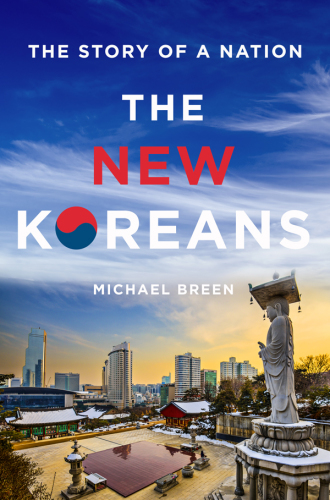
The New Koreans
The Story of a Nation
- اطلاعات
- نقد و بررسی
- دیدگاه کاربران
نقد و بررسی

February 13, 2017
Journalist Breen (Kim Jong-il: North Korea’s Dear Leader) illuminates the nature of the South Korean economic miracle that took this nation from postwar ruin to prosperity, Gangnam style, in less than 50 years. South Korea’s transition to democratic capitalism was shockingly fast and thorough, which Breen attributes to a combination of deep-seated cultural and historical factors—an underdog complex, the desire to “win,” the myth of national purity—before attempting to peer into the South Korean soul and thereby predict the future of politics on the Korean peninsula. Despite Breen’s decades spent living in Korea, he has not lost the casual, wink-and-nod cultural chauvinism of a foreign correspondent sent to cover the Third World. “There is of course some history, but not much,” he asserts flatly about modern South Korea, following this up with a series of anecdotes about when the country stopped signifying “third world” poverty in the eyes of Westerners—who are the only readership with whom Breen is concerned. Breen’s insights into South Korean culture and politics are undercut by his joking tone and uneven writing style. This bizarre mix of pop psychology and cultural determinist theories won’t serve Korea specialists or general readers. Agent: Kelly Falconer, Asia Literary.

February 1, 2017
An exploration of "the cultural emergence and...international awareness and acceptance of South Korean expression to a point of familiarity."In this update and extension of his earlier book, The Koreans (1999), Breen (Kim Jong-Il: North Korea's Dear Leader, 2004, etc.), a longtime observer of the country's rise to global prominence, finds much to love and emulate about people, specifically those in the South. Indeed, his fondness for the Koreans often causes him to excuse some of their less-pleasant traits, such as the tendency, as part of their hierarchical culture, to act rudely toward people they deem inferior. In Breen's characterization, the South Koreans are as amazed as the rest of the world by their success, since only 40 years prior, the future still looked bleak under their dictatorial government. Only in the 21st century have the Koreans woken up "to their own arrival in the world," largely thanks to the hard-striving generation of those born between 1920 and 1955, who embraced and contributed to the country's economic development. In discrete chapters, Breen tackles some of the themes dear and/or onerous to the country, including its defiance in the face of Japanese invasion and North Korean aggression; its proud reforestation projects started in the late 1960s; the stubborn obeisance to authority and need for a leader; massive gentrification; growth of Protestantism; near-universal literacy rate; high suicide rate; and near-lowest birth rate in the world. Along with a deep consideration of the materialistic bent of the worker bees, Breen is rooting for the country's democratic system, only in place for two decades and living in uneasy compatibility with an independent-minded military. And where once the author was predicting unity of North and South in the Korean peninsula, he now calls rather for "reconciliation" between the two sides, which can only happen, he admits, when the North's leadership decides to make the change. A solid entry point into the lives of a people who have fully earned their place on the world stage.
COPYRIGHT(2017) Kirkus Reviews, ALL RIGHTS RESERVED.




دیدگاه کاربران